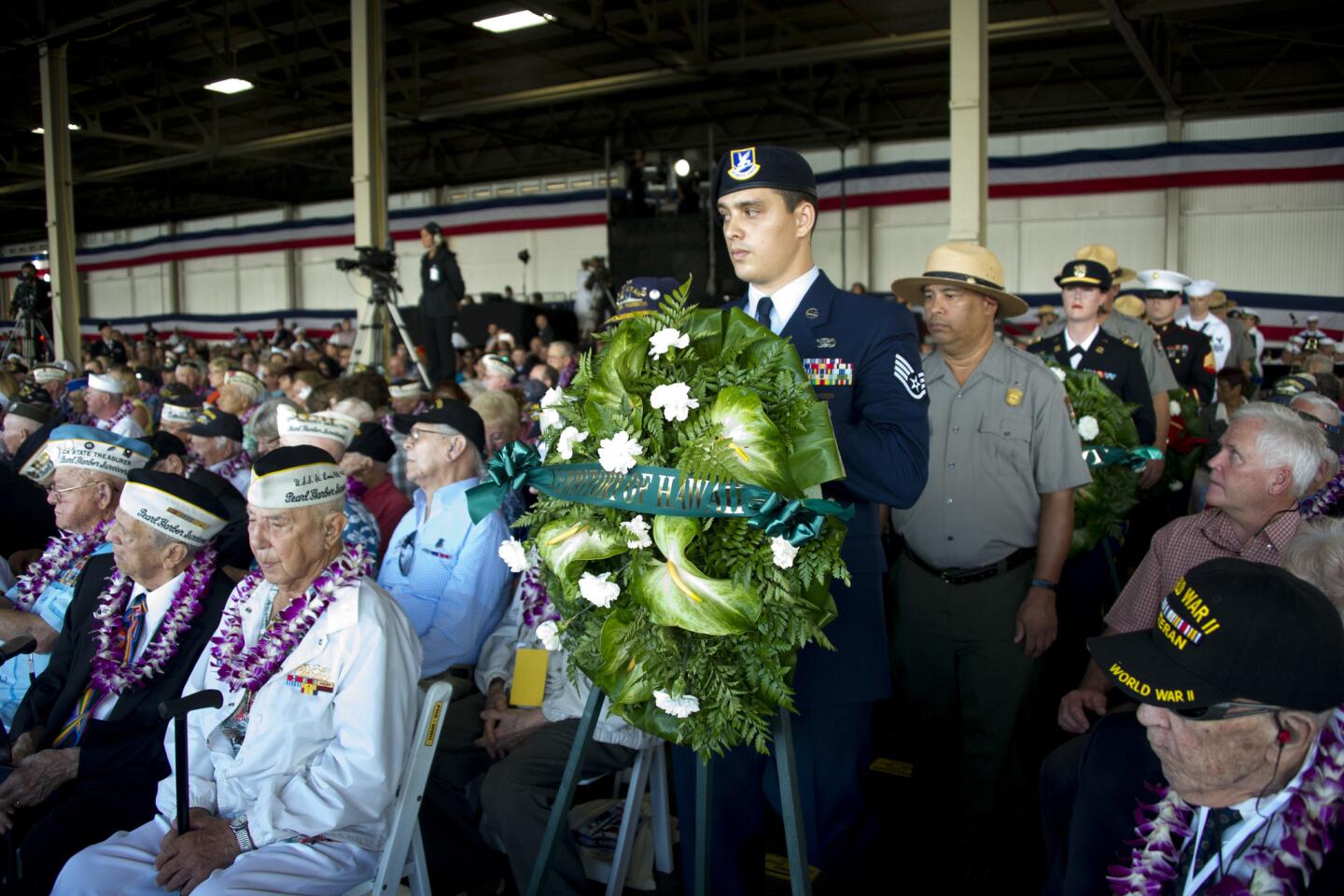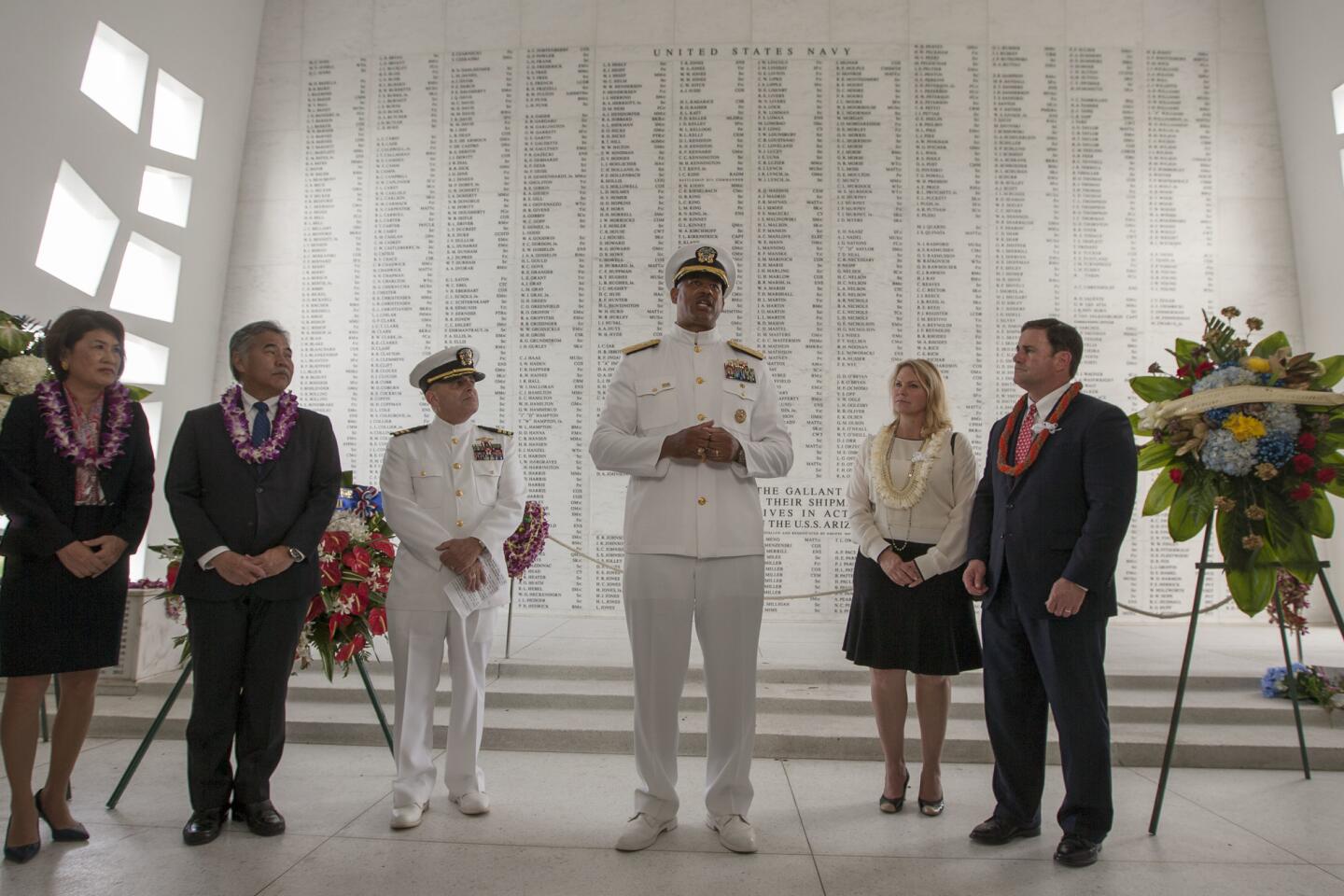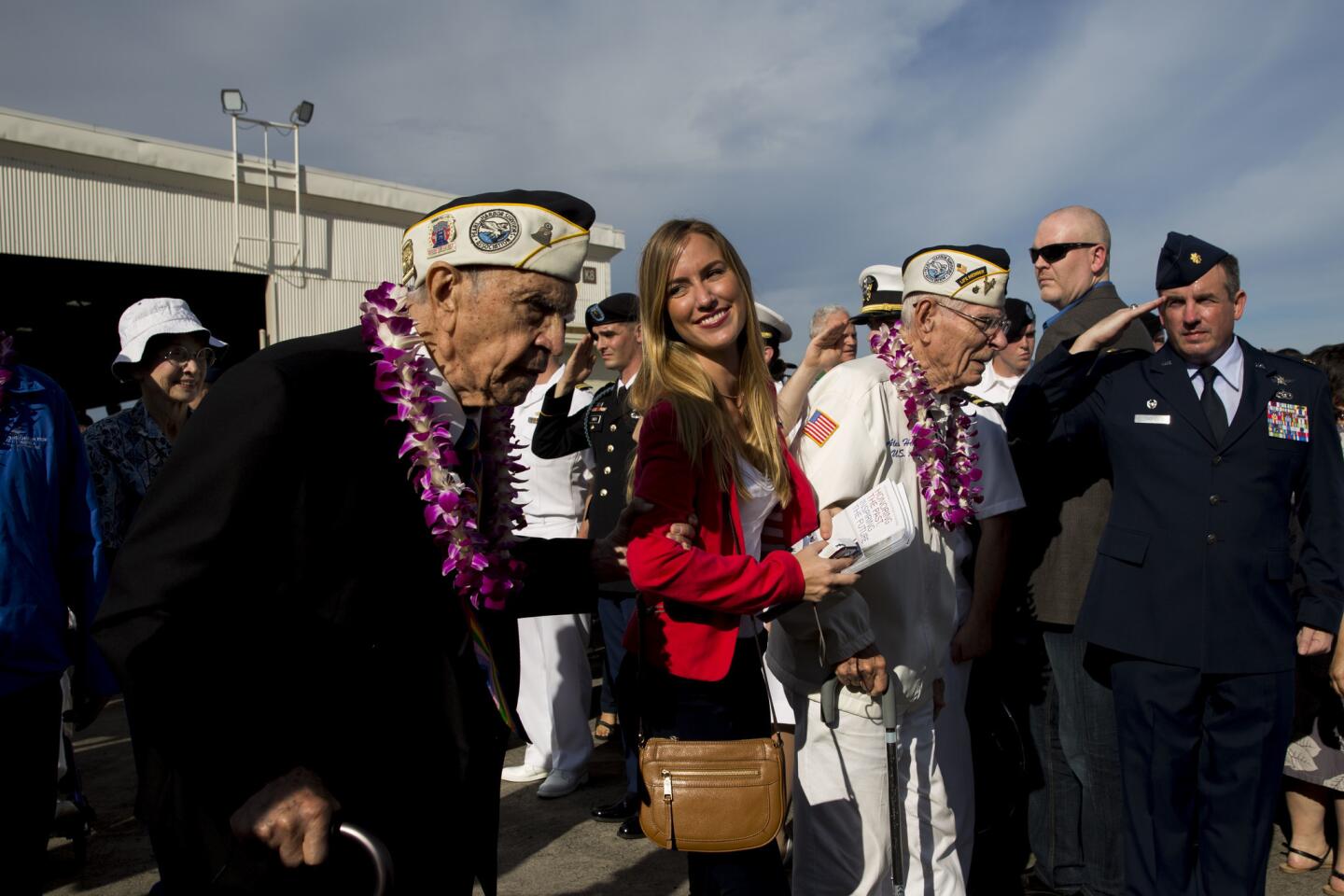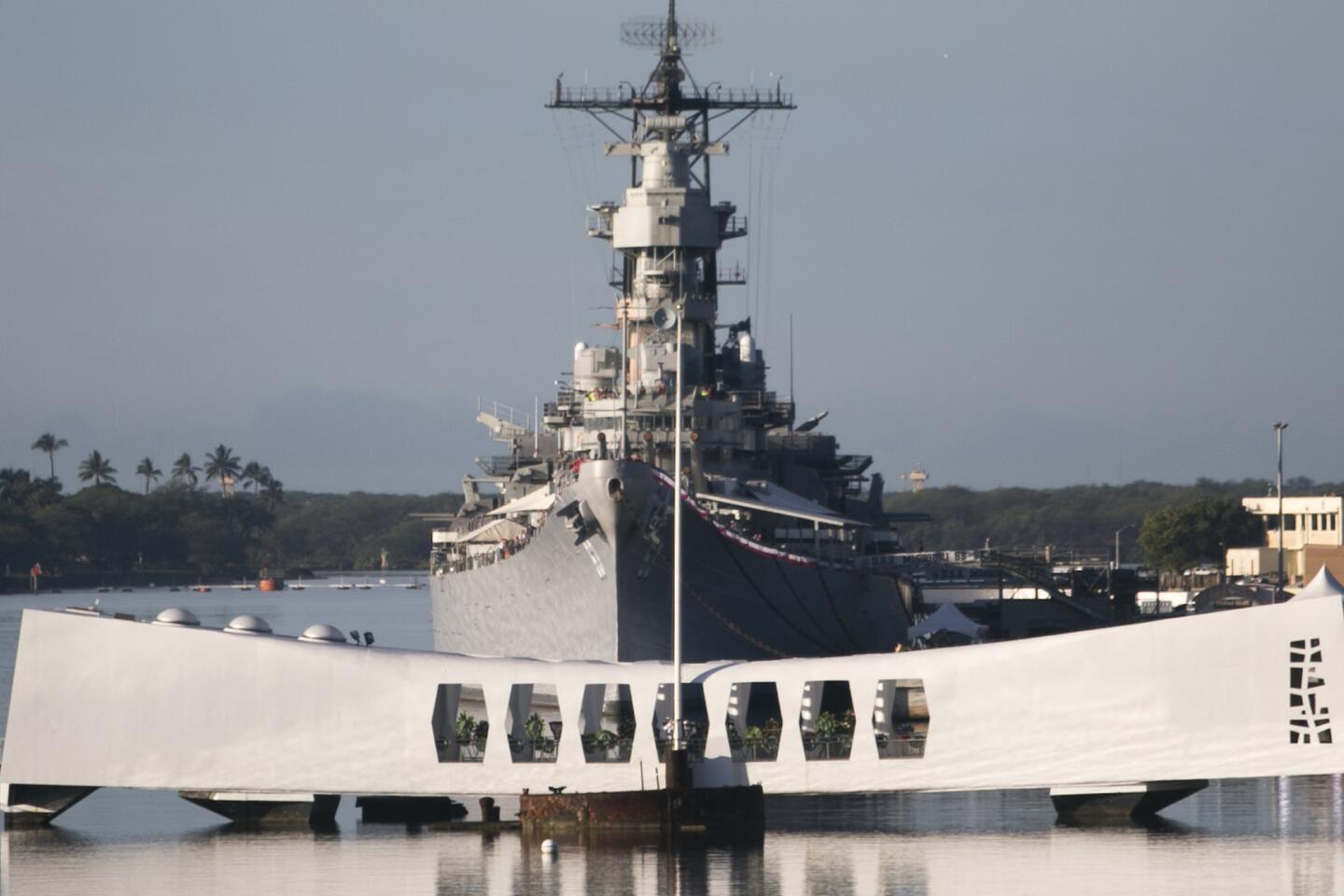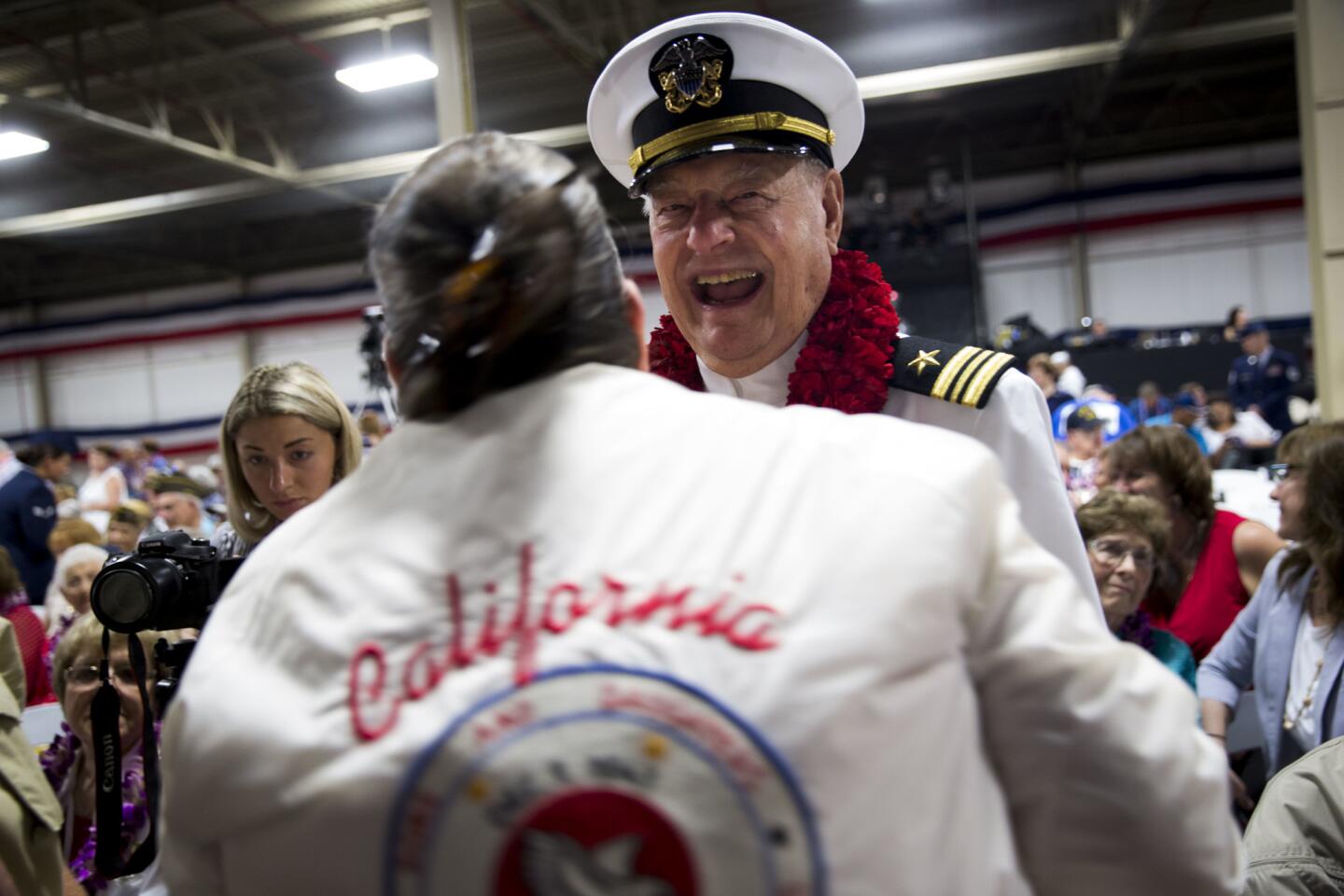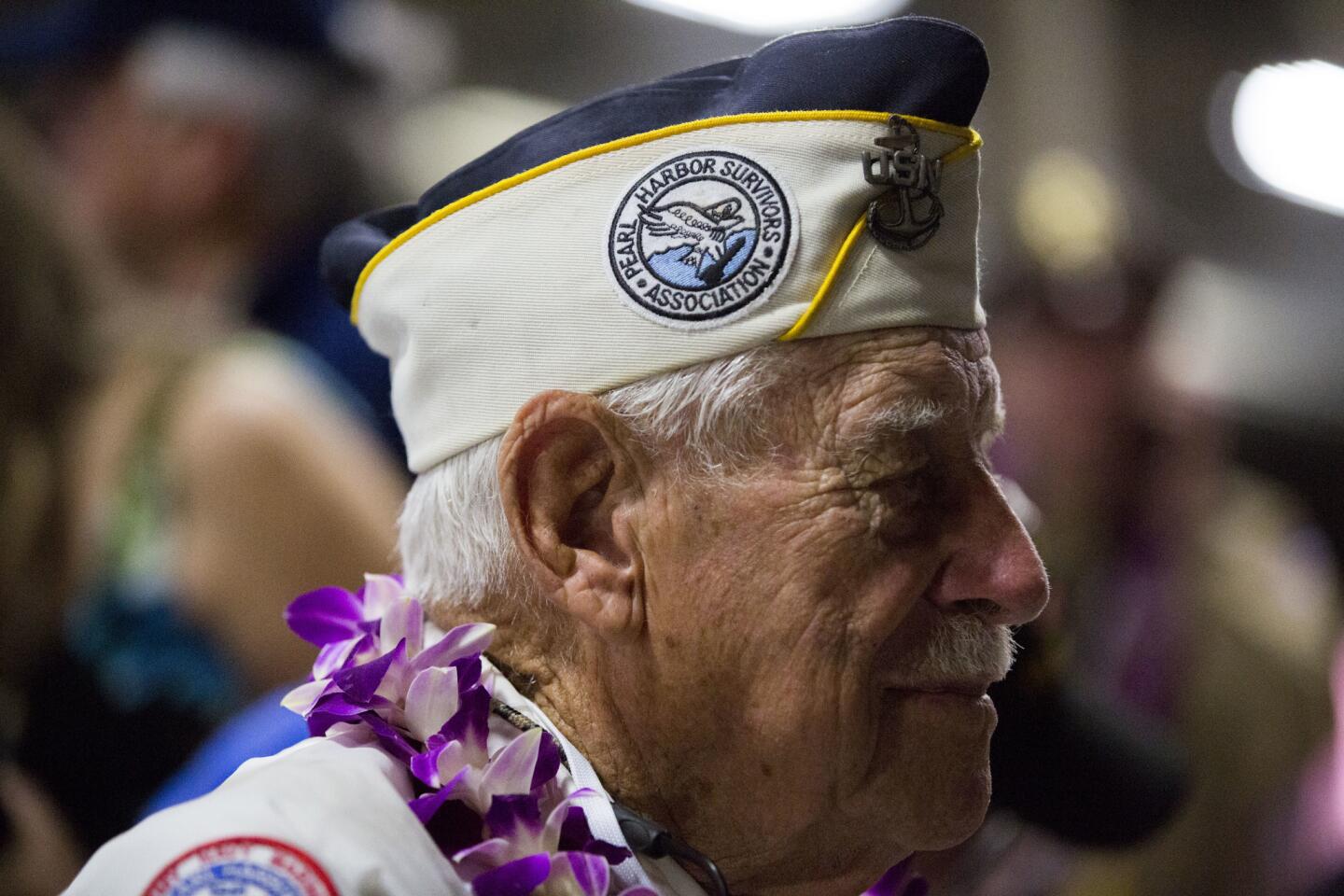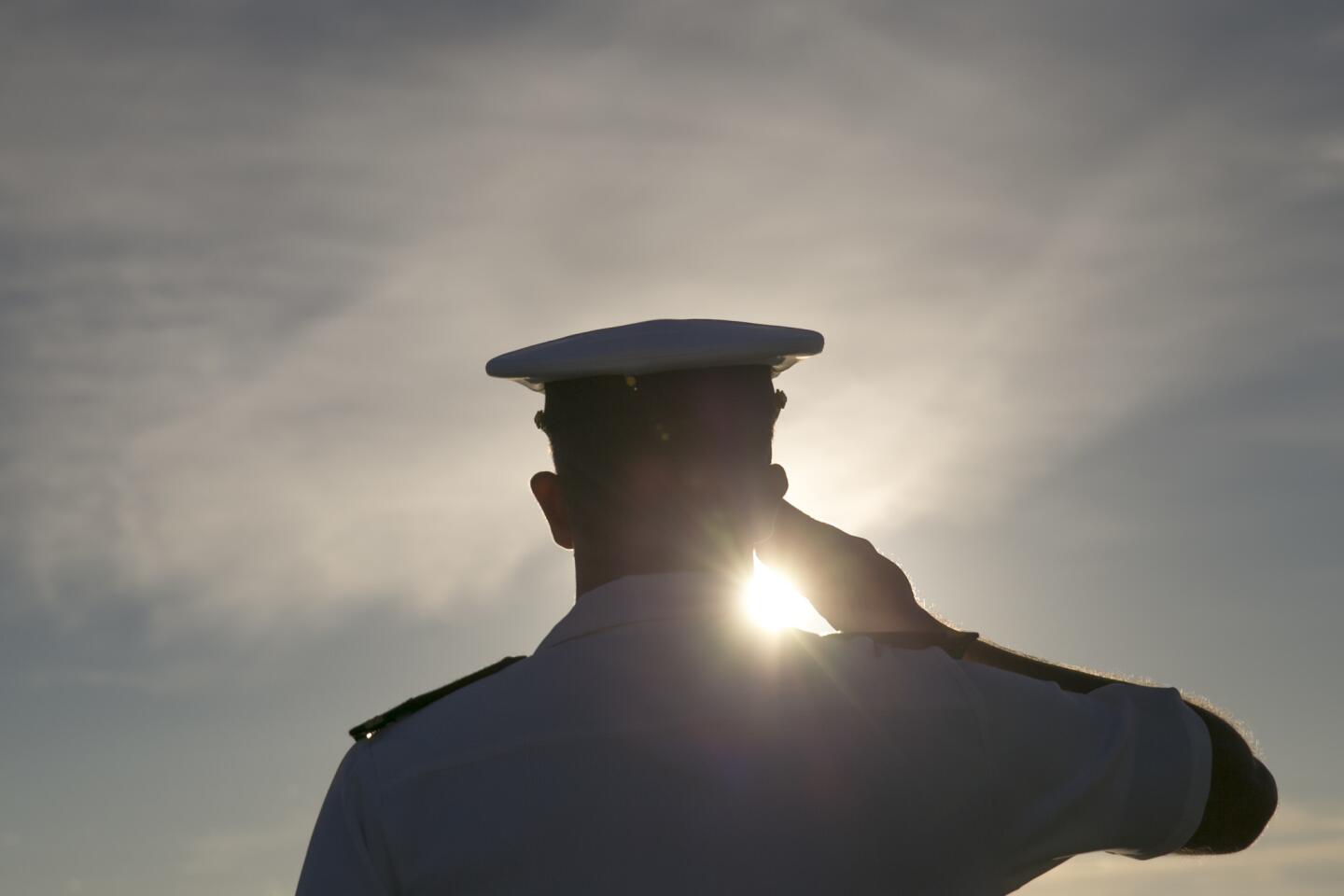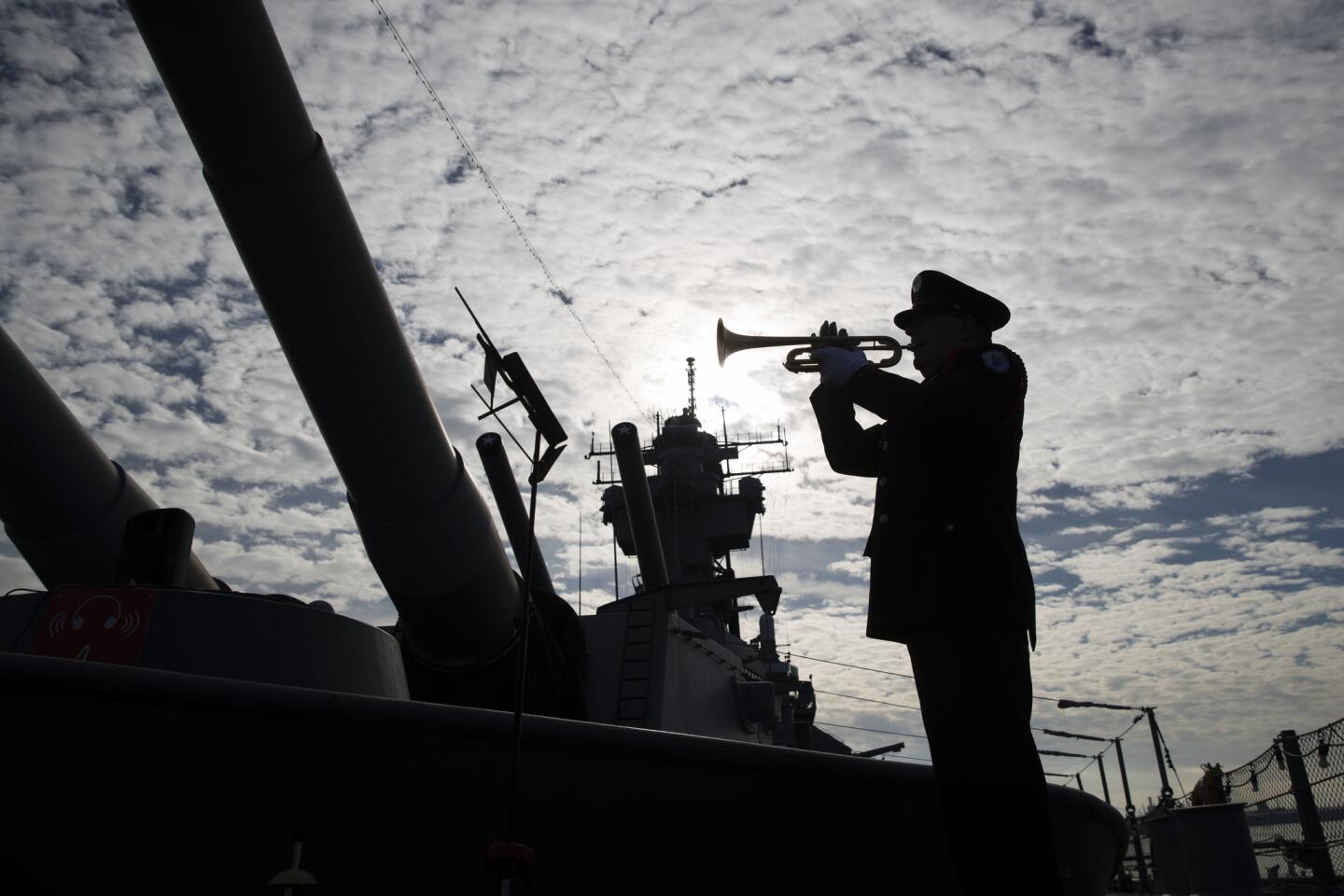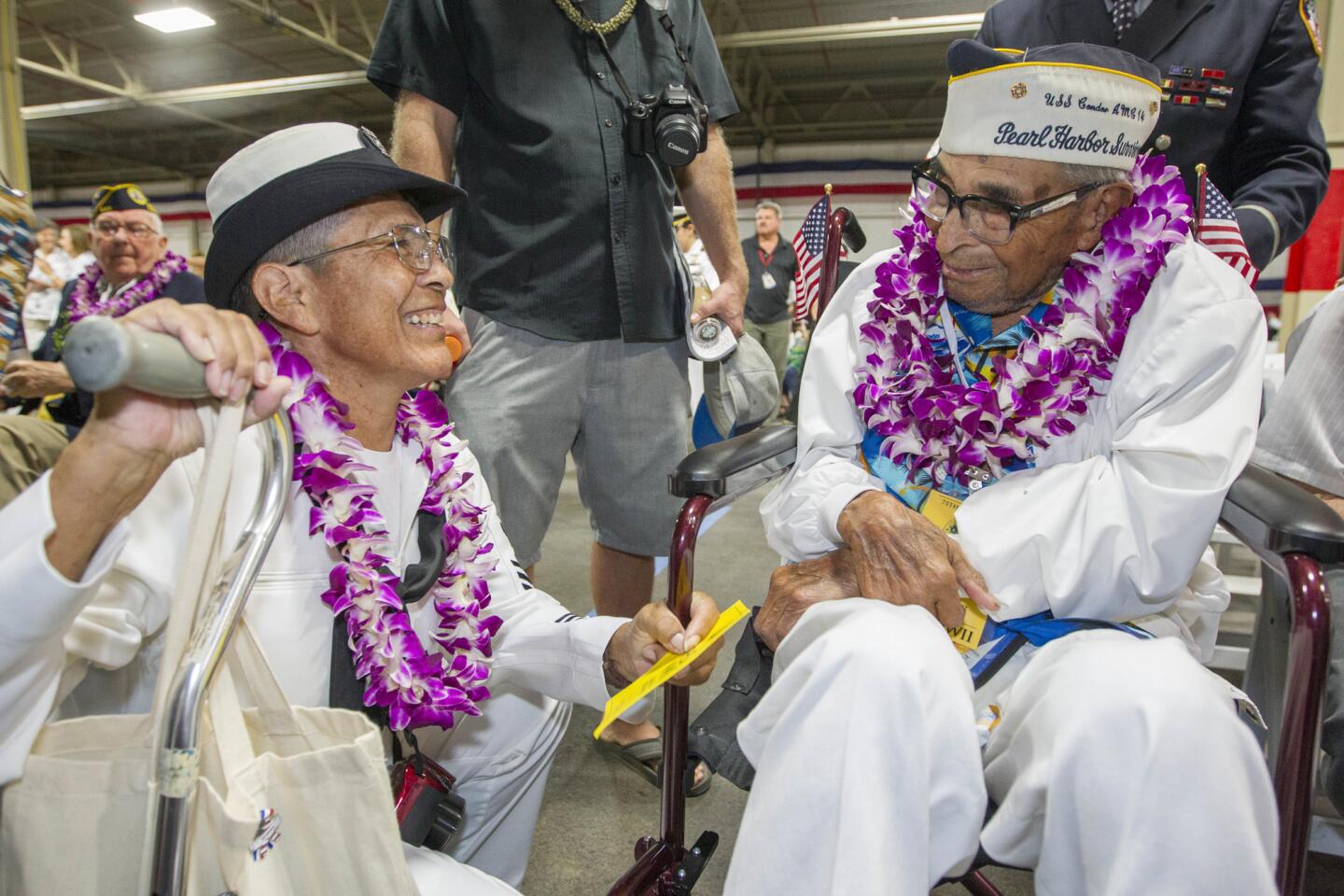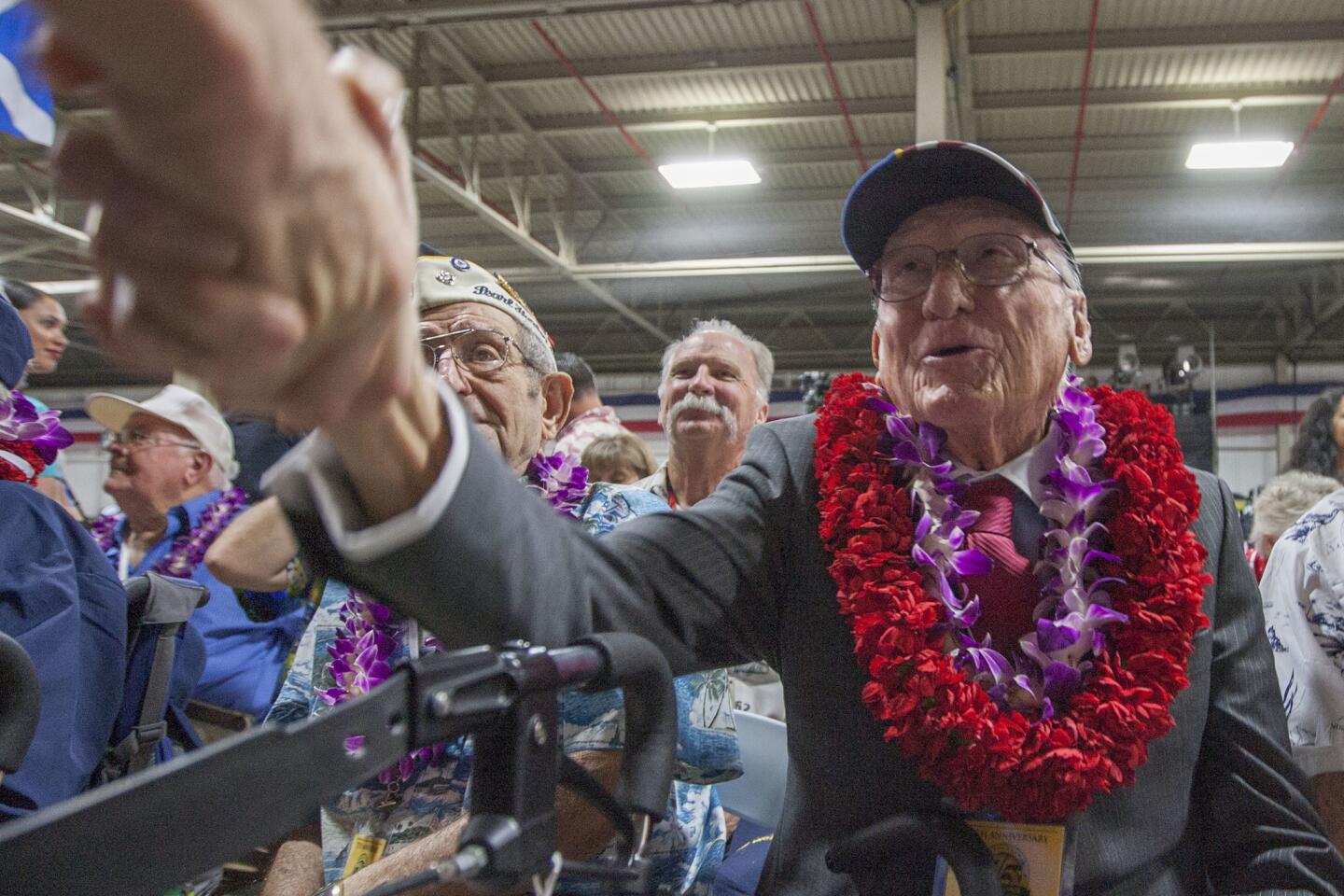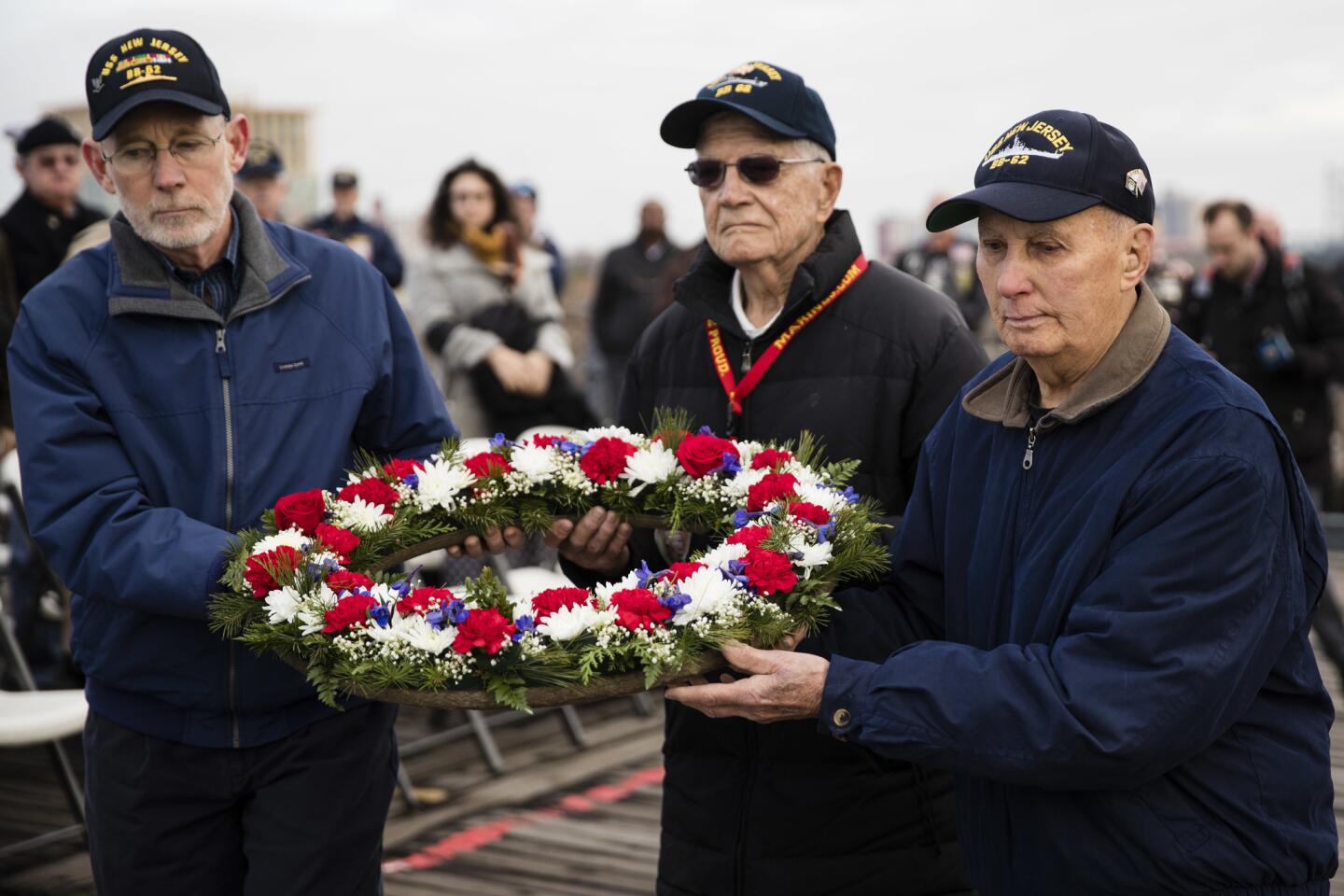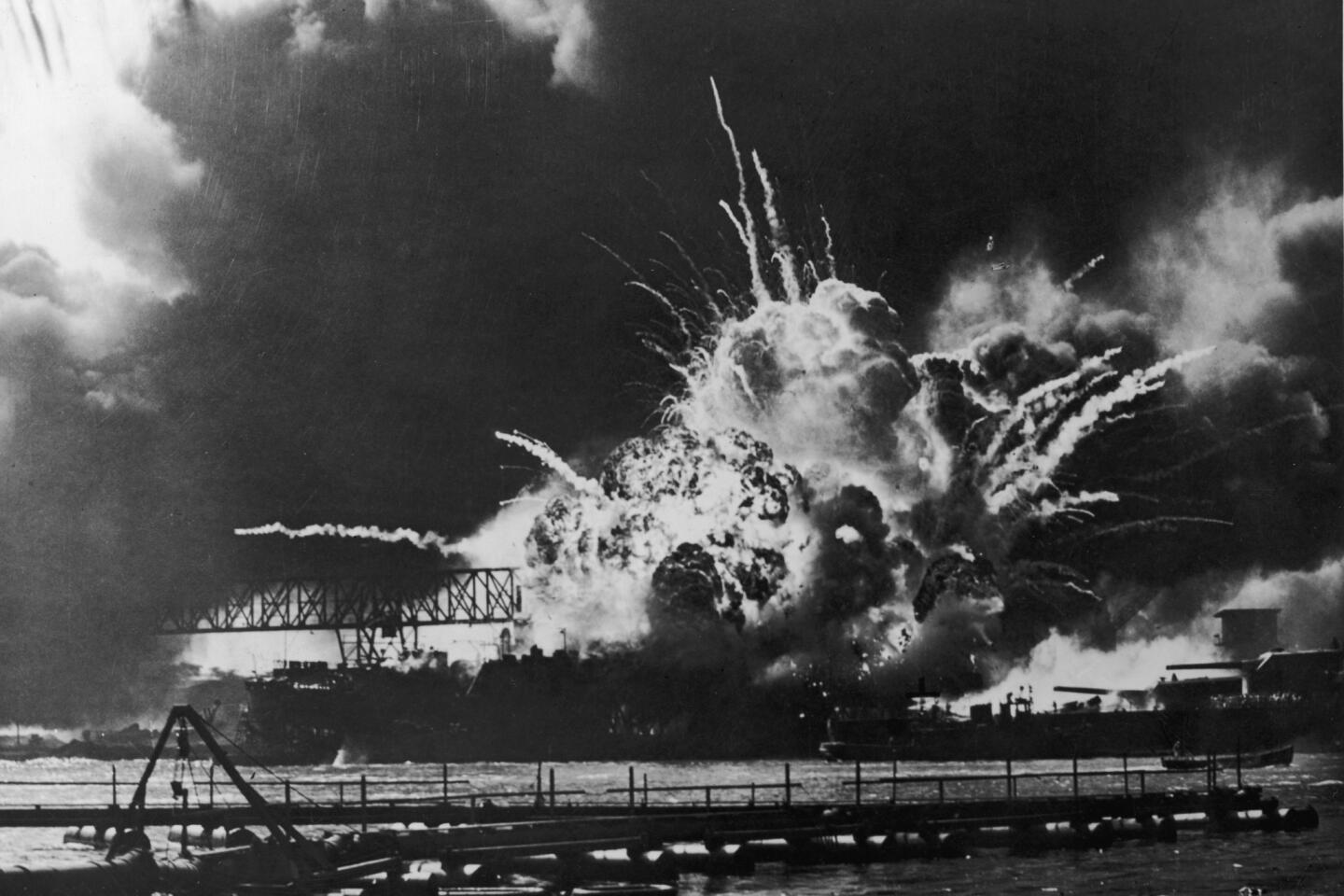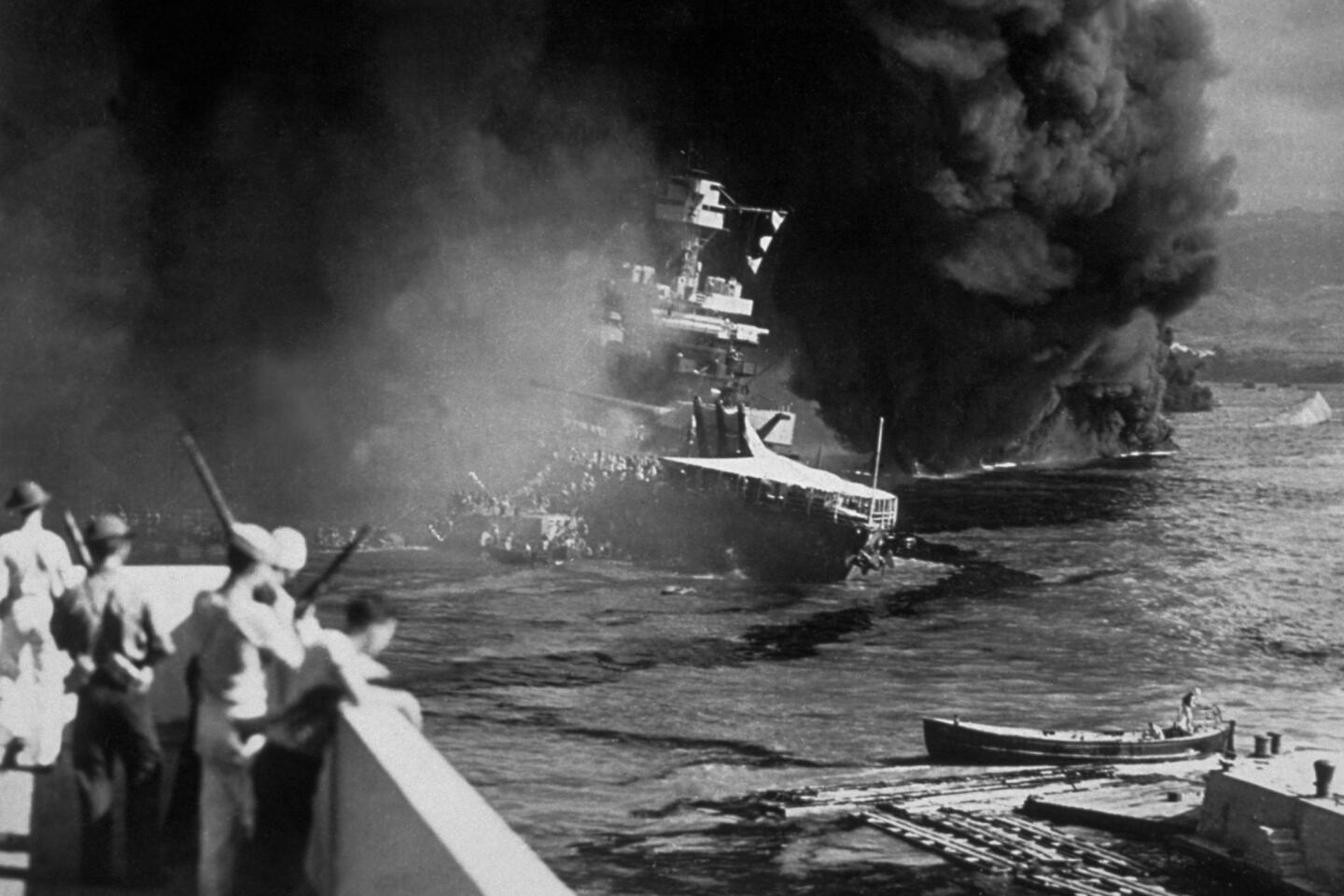75 years after the Pearl Harbor attack, ceremonies and a push to capture survivors’ stories
Reporting from Honolulu — His teenage hand could grip a baseball and fire it from the hole in shortstop. Later, in his 50s, it would clutch a pen while grading college papers. But on this morning, looking down at the old scars, he remembered how his right hand helped pull dead bodies from the oily, fiery seawater at Pearl Harbor.
It was where Earl Smith’s mind went during Wednesday’s 75th anniversary ceremony marking Japan’s attack on the U.S. naval base in Hawaii on Dec. 7, 1941. More than 2,400 people were killed, and the attack plunged the United States into World War II. Smith was aboard the battleship Tennessee at the time. It was damaged in the hourlong raid but never sank.
“I felt like I was trying to save lives — and we did pull a few out who were wounded — but most we just had to tie a rope to the leg and pull them out and stack them like cords of wood,” Smith said. “That first day, I didn’t even know I was burned that badly. I think it was just shock.”
A Pearl Harbor survivor spent decades trying to forget it. Then one man got him talking »
More than 9,000 people came — many before the sun rose — to pay their respects to aging Pearl Harbor survivors like the 94-year-old Smith, who shook hands and posed for pictures before the ceremony started on the Kilo Pier across the harbor from the battleship Arizona Memorial.
Don Stratton, one of five survivors from the Arizona — four were in attendance — was guided to the stage and he saluted the destroyer Halsey as it glided through the tranquil waters between the Kilo Pier and the Arizona Memorial.
The Arizona lost 1,177 crew members in the attack.
Stratton recently wrote a book about his experience aboard the Arizona titled “All the Gallant Men,” a bestseller at a time when groups are trying to preserve the stories of those who experienced the attack as they edge close to centenarian status.
“It’s been said that when an old person dies, it is like a library burning down. Having survived a fire that took so much from me, I have an obligation to save what memories I have from the flames that will one day come and claim what is left of me,” Stratton wrote in his memoir. “I share what I remember when I can. But a day will come when I can no longer speak. What then, I have asked myself. What will become of the memories that I as a survivor have experienced? Or the lessons that we as a nation have learned? That is why I wrote this book.”
The 90-minute ceremony began at 7:45 a.m., and there was a moment of silence at the time the bombs started falling, at 7:55 a.m. that Sunday morning in 1941.
Hickam Air Force Base, which was bombed by Japanese planes early in the attack to keep American aircraft out of the sky, also held a smaller memorial event during the main service.
The ceremony at Pearl Harbor was attended by high-level military officers, officials from the National Park Service — which operates the Arizona Memorial — governors from Arizona and Hawaii, and several local officials.
Admiral Harry Harris Jr., commander of the U.S. Pacific Command, gave a short speech that praised those who served in the military during the attack and drew parallels to the Sept. 11, 2001, terrorist attacks.
“Those who survived Pearl Harbor also left us a warning. Remember Pearl Harbor. Keep America alert. Eternal vigilance is the price of liberty — an imperative to never be caught by surprise again,” Harris said. “But 15 years ago, we were again surprised by a major attack on our soil. Not by a nation state this time, but by terrorists. As before in the preceding decade, alarm bells had been ringing.”
Harris’ biggest applause came after the national anthem had kicked off the ceremony and he observed veterans saluting. He took what appeared to be a jab at San Francisco 49ers quarterback Colin Kaepernick, whose decision to not stand during the anthem before NFL games made headlines as he tried to draw attention to police shootings of black men.
“The men and women we honor today and those who died on that fateful morning 75 years ago never took a knee and never failed to stand whenever they heard our national anthem being played,” Harris said.
President Obama, who will visit the Arizona Memorial this month with Japanese Prime Minister Shinzo Abe, said in a statement that the sacrifices of those who served during World War II were crucial to remember.
“We give thanks to the veterans and survivors of Pearl Harbor who faced down fear itself, met infamy with intrepidity, freed captive peoples from fascism and whose example inspires us still,” Obama said. “For out of the horrors of war, this Greatest Generation forged an enduring international order, became the backbone of the middle class and powered America’s prosperity. Their courage and resolve remind us of that fundamental American truth — that out of many we are one; and that when we stand together, no undertaking is too great.”
A private interment was scheduled later for two Arizona crew members who recently died. John Anderson and Clarendon Hetrick requested their remains be placed in the ship. The Arizona is the only ship that allows remains to be placed in it, a task carried out by the National Park Service and Navy divers, who place an urn in the well of turret No. 4.
Twitter: @davemontero
ALSO
Japanese leader Shinzo Abe to visit Pearl Harbor with Obama
UPDATES:
4:20 p.m.: The story was updated to include details from the ceremony.
10:15 am.: The story was updated with the start of the Pearl Harbor ceremony.
The story was originally published at 7 a.m.
More to Read
Sign up for Essential California
The most important California stories and recommendations in your inbox every morning.
You may occasionally receive promotional content from the Los Angeles Times.
